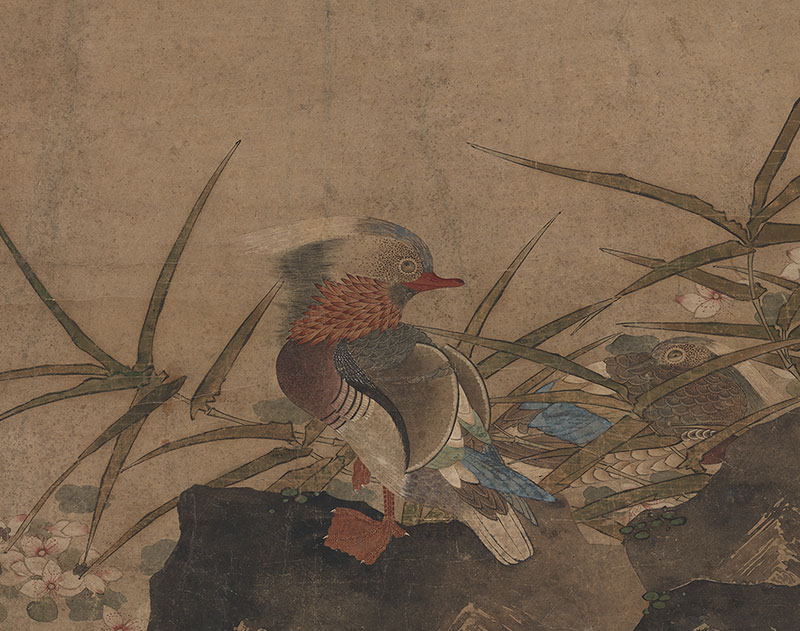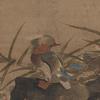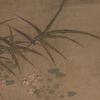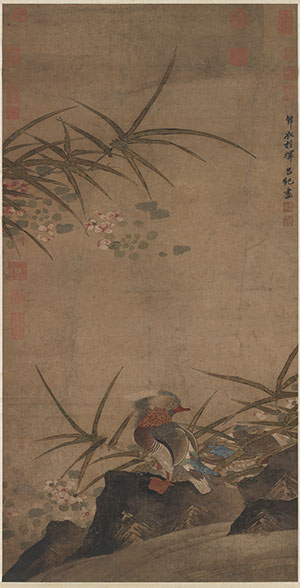


About the Artist
Artwork Story

Stone as a Mirror of Souls
The central rock becomes an emotional battleground: the right duck buries its beak in feigned sleep, while the left one’s alert eyes mirror unseen storms. This psychological tension reflects Ming scholars’ marital reality – physical proximity with spiritual alienation.
Floating Weeds: A Philosophy of Falling
Three duckweeds hover at 45-degree angles, eternally suspended by Lü Ji’s brush. This “unfinished falling” echoes the semi-closed eyes of the duck, creating a vacuum for viewers to project their anxieties. As art historian Wu Hung notes: “The blank space here is a reverberation chamber for existential tremors.”
Blossoms as Political Prophecy
The peach petals nestled in stone crevices form a secret I Ching code. The intact bloom symbolizes Yang’s vigor, the fading one clings like Fire, the bare calyx embodies Earth’s acceptance. This cosmological metaphor warns of an empire’s transition from prosperity to decline.


 (c. 1380-1390)-full.webp)
-full.webp)
-full.webp)
-full.webp)
-full.webp)
-full.webp)